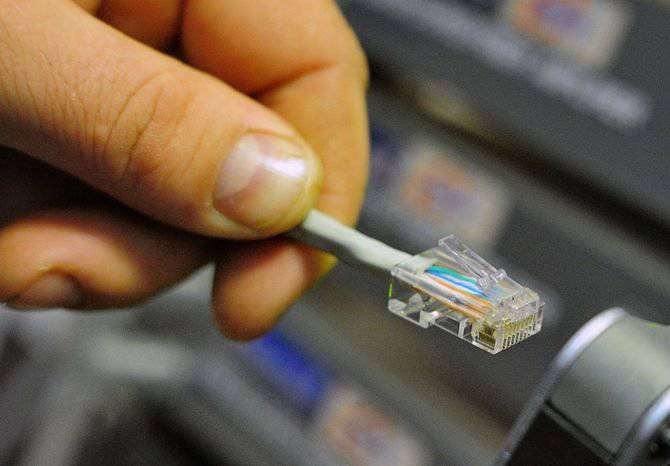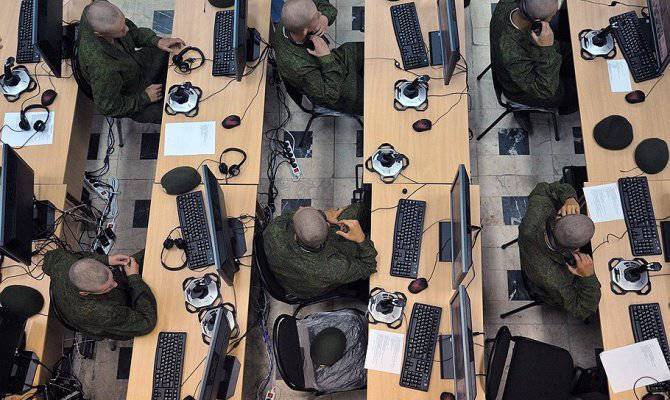Russian security agencies will hide their secrets in a single network
Most of all in this direction were zealous for the United States, which had long ago acquired their own “second Internet”. This is the Secret Internet Protocol Router Network or abbreviated as SIPRNet. This is a special secret network that today is used by the State Department and the Pentagon, which communicate with its many embassies, consulates and military bases scattered around the world.
Just a couple of years ago, Huffington Post estimated the number of SIPRNet users to 4,2 million subscribers and noted that this number grew 1,5 times over the previous year’s 2 (in 2009, the secret network used US 2,4 million). In addition to the Yankees themselves, an insignificant number of subscribers from countries that are the closest allies of the United States were allowed to enter the secret network. That is - the Anglo-Saxon states - the UK, Australia and New Zealand.

It is quite natural that Russia could not escape the issues of protecting important information at the state level. The material that was published on 28 in the August edition of Kommersant is a clear confirmation of this. According to this material, at the end of May 2013, Russian President Vladimir Putin endorsed the idea of the FSB to develop a special integrated communications network (ISS), in which all Russian law enforcement agencies and structures should be involved. The special services explain that this network will be focused on "the needs of the security and defense of the state, the rule of law."
As expected, the ISS will be able to counter full-scale cyber attacks from abroad. According to Kommersant, Vladimir Putin endorsed the idea of creating this network. Currently, the cost of the project is not disclosed, but sources point out that it will be "unprecedented in scale." The creation of the ISS will be handled by the CITS (FSAU "Center for Information Technologies and Systems of Executive Authorities") and Rossvyaz. Before the start of work on this project, it will be discussed in all relevant ministries and departments. It is assumed that the concept of the project will be presented to the Government of Russia in September 2013. The press office of the president of the country does not comment on this information.
At the same time, traditional approaches to building and ensuring information security of communication networks of special consumers, which are based on the use of resources of public communication networks, are not able to protect control systems and communication networks from cyber actions, malicious programs in the event of information security operations, attacks by cyber-terrorists and other cybercrime, - said the source of "Kommersant". He also recalled that back in January 2013, Putin ordered the FSB of Russia to work out the option of creating a state system for predicting and preventing cyber attacks on Russian information resources. In August, the FSN created a draft law on ensuring Russia's information security, and also proposed an increase in criminal penalties for hacker attacks.

Vladimir Kalinin, who is an adviser to the head of Rossvyaz, is aware of the existence of a project to create an integrated communications network. According to him, Rossvyaz was considered in the role of the federal authority, which was responsible for its development, but he knows nothing about the final decision on this project. Currently, the list of specific tasks and volumes of construction are not defined. At the same time, according to Kalinin, the experience of Rossvyaz can be used in the construction of communication networks for any purpose.
In a conversation with journalists, Pavel Starikov, who is the executive director of CITS, said that he “was not aware of this project,” but he assured that CITS had the necessary experience in designing and creating communication networks. Judging by the information on the official website of CITA, this institution specializes in projects in the field of IT-technologies (Internet search engines, data encryption, supercomputers); references to the telecommunications projects of the federal scale can not be found here. Despite this, the current president of CITA, Alexander Starovoitov, who in 1991, during the presidency of Boris Yeltsin, was one of the founders of the Federal Agency for Governmental Communication and Information (FAPSI), which he managed until 1998, has a fairly large experience in the implementation of large-scale state projects. In Starovoitov’s reception, this information could not be promptly commented, the Ministry of Communications declined to comment on this matter, and the FSB press service simply did not respond.
Currently, in all Russian power structures there is a closed cellular communication and e-mail, but the security services use various Russian operators (Rostelecom, Megafon, etc.) for this. It is at this junction, according to representatives of the FSB of Russia, that a real threat to the country's national security arises. A source of Kommersant close to the Security Council said that currently a number of countries in the world are developing means of dangerous exposure to public networks that disrupt communication networks and gain unauthorized access to them. In addition, at present a considerable part of Internet traffic, even the one that goes to the Kremlin, actually passes through the territory of the United States. At the same time, a large number of Kremlin administration employees prefer to use foreign mail services, for example, gmail.com.

Sources of publications in the Russian Defense Ministry noted that the issue of creating an ASC was raised, but here they believe that this is a question "from the realm of fantasy." The use of foreign equipment and technology in Russia is to blame. The former director general of Voentelecom, Alexander Davydov, also said that the Russian telecommunications industry is now totally dependent on foreign suppliers, for this reason it simply cannot be considered a reliable technological basis for command and control of troops.
The former general director of Rostelecom, Anton Kolpakov, estimated the cost of building such a network of special communications for law enforcement agencies at tens of billions of dollars. Such a network should include terrestrial and satellite communication channels, switches, its satellite and a single control center. In fact, we are talking about building a second Rostelecom only in miniature, with less bandwidth. According to Kolpakov, the issue of creating a separate communications network for security officials was raised in 2009 year. At the same time, it has always been about the use of resources of already existing telecom operators.
Today, it is impossible to say with confidence that the Russian defense budget will create its own analogue of SIPRNet, even despite the fact that in 2013, in terms of military spending, Russia entered the 3 place in the world, passing only the US and China ahead. In any case, no communication network can guarantee 100% information integrity and no leaks. A striking example of this is the American experience. When the SIPRNet network could not save the US military and diplomats from leaking secret information. Like any network, it turned out to be vulnerable from the inside, despite the fact that it was sufficiently well protected from external influence. A huge number of people who had access to it (more than 4 million people), was the reason that among them there was one person who decided to merge secret information. This is exactly what analyst Bradley Manning did, who uploaded thousands of secret files from the Pentagon, the State Department and the White House to the WikiLeaks portal.
Information sources:
-http: //kommersant.ru/doc/2265143? isSearch = True
-http: //www.computerra.ru/80880/rossiyskiy-siprnet-fsb-rf-vyistupaet-s-predlozhenzhenami-po-sozdaniyu-zashhishhyonnoy-seti-dlya-nuzhd-oboronyi-stranyi
-http: //www.utro.ru/articles/2013/08/28/1140266.shtml
-http: //slon.ru/fast/russia/fsb-stroit-set-ot-atak-zaruzhebnykh-khakerov--983250.xhtml
Information